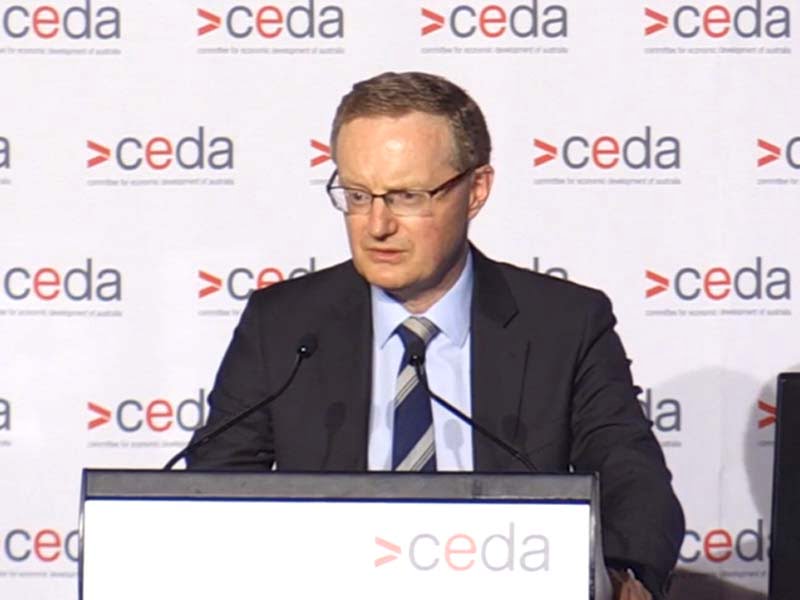The Reserve Bank of Australia boss has slammed the rapidly increasing valuations of Bitcoin and other crypto currencies as a “speculative mania,” but has nonetheless confirmed the RBA is considering the creation of a digital Australian dollar.
In a rare speech addressing technology and payments, RBA governor Philip Lowe talked about the upcoming New Payments Platform, digital banknotes, Bitcoin and the possibility of a cryptocurrency version of the Aussie (AUD).
Mr Lowe was highly critical of Bitcoin and its recent volatility, and the chances of it becoming a genuine payment alternative.

“In reality these currencies are not being commonly used for everyday payments and, as things currently stand, it is hard to see that changing,” Mr Lowe said during his address to the 2017 Australian Payment Summit in Sydney on Wednesday.
“The value of bitcoin is very volatile, the number of payments that can currently be handled is very low, there are governance problems, the transaction cost involved in making a payment with bitcoin is very high and the estimates of the electricity used in the process of mining the coins are staggering.
“When thought of purely as a payment instrument, it seems more likely to be attractive to those who want to make transactions in the black or illegal economy, rather than everyday transactions,” he said.
“So the current fascination with these currencies feels more like a speculative mania than it has to do with their use as an efficient and convenient form of electronic payment.”
He was much more positive on the prospect of the RBA issuing a digital version of the Australian dollar that could be used to make payments on private blockchains, saying he the RBA was in discussions with relevant stakeholders on this issue.
“A convincing case for issuing Australian dollars on the blockchain for use with limited private systems has not yet been made,” Mr Lowe said.
“It is certainly possible that this type of system could lead to more efficient, lower-cost business processes and payments. My working hypothesis here is that such a case could develop, although we need to work through a range of complex operational and policy questions.
“To help understand these various issues, Reserve Bank staff have liaised closely with FinTechs and financial institutions. We also regularly talk with other central banks that have tested distributed ledger technologies in some related context. We are also currently working with some external entities to observe or participate in proof-of-concepts similar to those of other central banks. So this area remains a work in progress for us.”
A number of local FinTechs have been lobbying the RBA and Treasury this year to create a cryptocurrency version of the AUD.
In August, three FinTechs presented use cases of how such a national digital currency would be beneficial
Mr Lowe said the RBA would further investigate the possibility and difficulty involved with this proposal.
“Whether a strong case for the development of these types of systems emerges remains an open question,” he said.
“We need to better understand the potential efficiencies for private business and why it would be preferable for such a settlement system to be provided by the central bank, rather than the private sector; why privately issued tokens or files could not do the job,” he said.
“We also need to understand why an efficiency improvement could not be obtained by using the existing Exchange Settlement Accounts and the NPP. We would also need to understand whether and how risk in the financial system would change as a result of such a system. It remains unclear which way this could go.
“On the one hand, these types of processes could use a very different technology from the current system, which is based on account-to-account transfer, so they could add to the resilience of the overall payment system. But there would be a whole host of new technology issues to manage as well.”
A number of other countries are also investigating the possibility of a national cryptocurrency.
A group of Japanese banks, with the banking of the central bank and regulators, are currently working on a digital currency to be launched before the 2020 Tokyo Olympic Games, while Estonia has also signalled an its intention to launch a government-backed crypto-currency.
Do you know more? Contact James Riley via Email.

